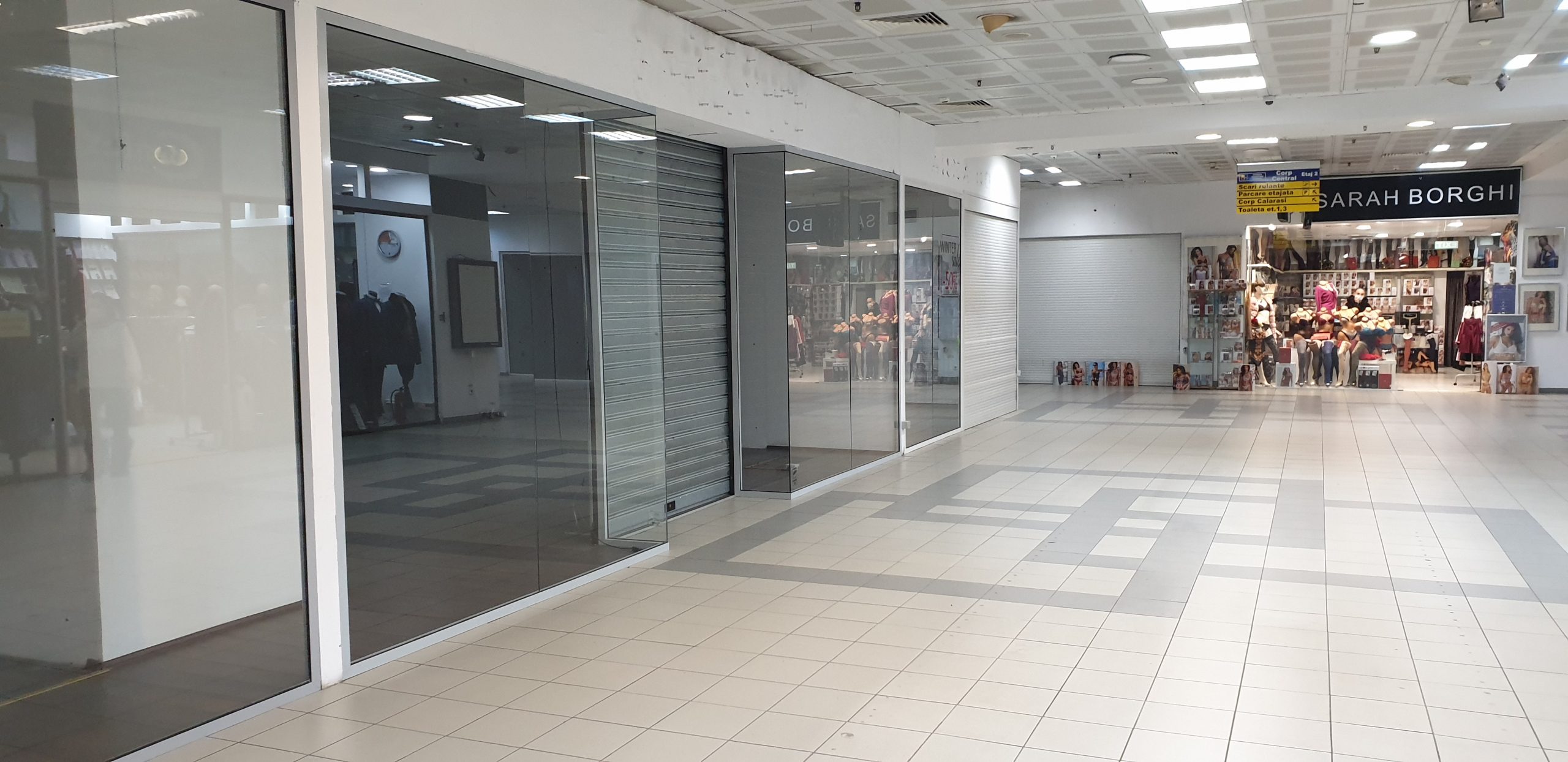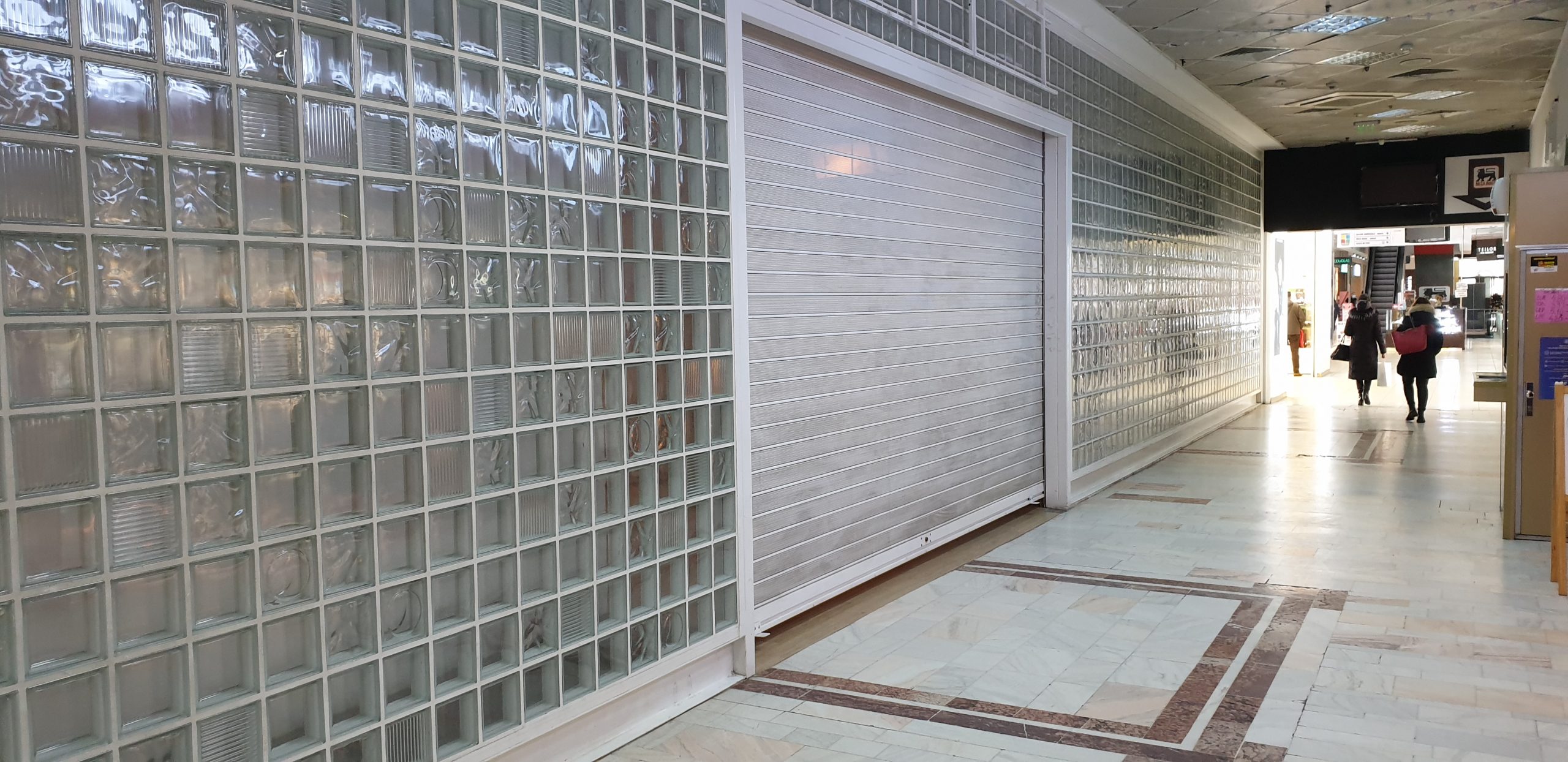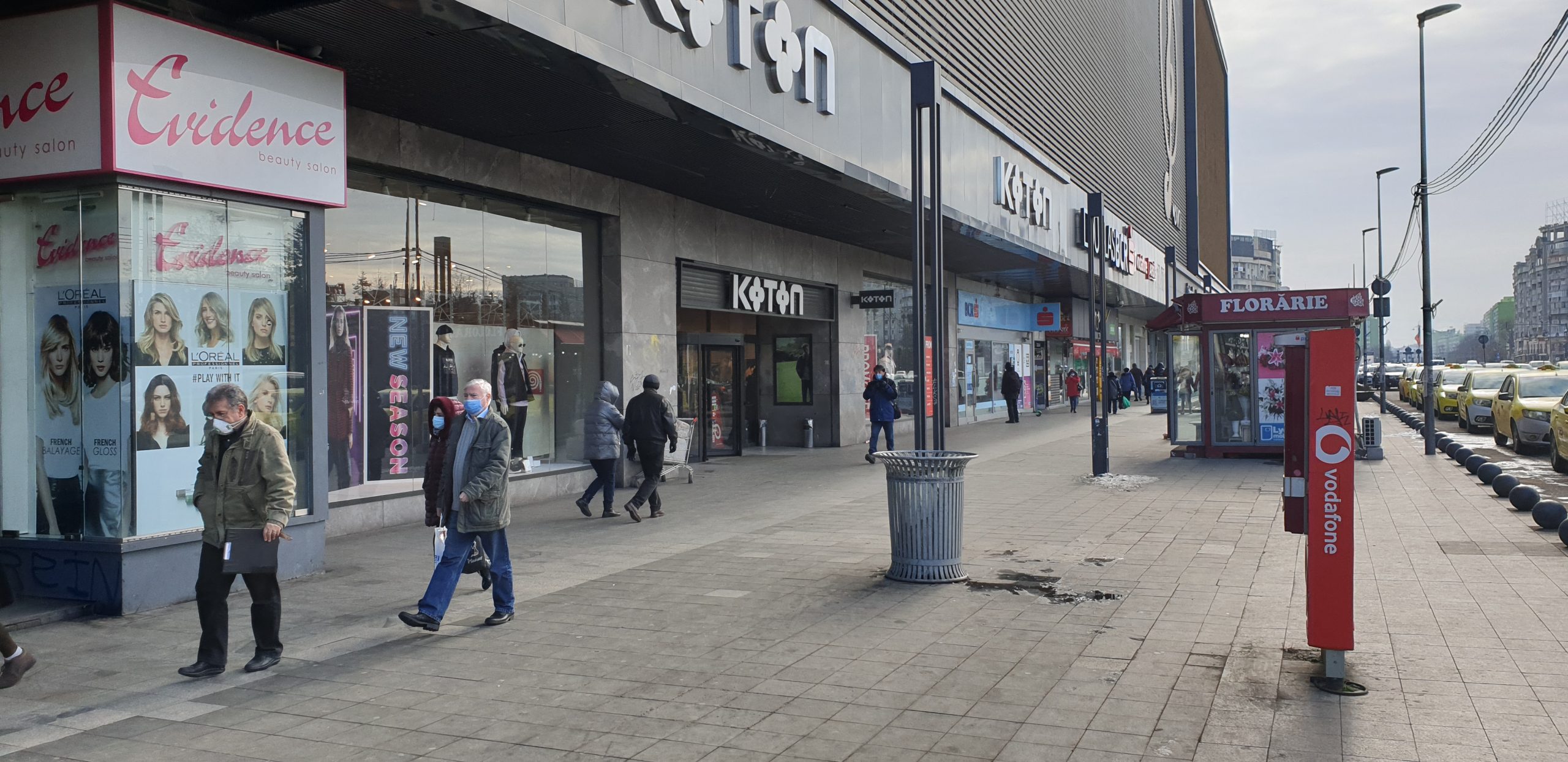The store at the Unirea Shopping Center, in the center of the Capital, remains day by day without more tenants. The coronavirus pandemic and the mismanagement of the company owned by Alexander Adamescu, son of former businessman Dan Adamescu, made the “kilometer 0” of Romanian fashion, a colossus that risks collapsing under the memories of its former glory. Large clothing stores such as Bershka, Pull & Bear, Kenvelo, but also others have already put the lock on the door. And of the merchants who had rented spaces much smaller than the aforementioned retailers, only a few remained.
Unirea Shopping Center, the shopping center with more employees than customers
Founded in 1976, the Unirea Shopping Center has passed the times with its head held high, like a true knight dressed in armor, aware of its status and almost intangible value. From the beginning, through his extremely favorable position, at the navel of the label, he won the sympathy of the citizens very quickly. In the Golden Age, the Unirea Universal Store was considered a true diamond of commerce in Romania, and after the 1990s it was transformed into a capitalist shopping center.
Thus, until May of last year, the shopping center in downtown Bucharest was full of shops, restaurants and entertainment venues, distributed over its five floors. It was an emblem of commerce and an ideal place for walks and meetings with friends.
But with the pandemic significantly reducing the flow of customers into stores, things have started to creak for Alexander Adamescu’s company. Brands like Bershka and Pull & Bear, owned by Spanish retailer Inditex, closed the shutters and closed the door. And they are not the only ones who have stopped paying huge rents. Most of the businesses that operated in the commercial spaces within the mall also closed.

The deserted shop in the center of the Capital
If you are curious to see what the Unirea Shopping Center is like now, you should know that, if you come by car, you will find parking spaces only on the first level of the car park, with the rest of the levels closed. But rest assured, you have a choice, because customers are not crowded with purchases like they used to be. The access doors to the store and the corridor you have to go through give you the feeling that you are in one of Alfred Hitchcock’s horror films. The dark light, the metal floor in the narrow hallways, the walls drawn from one place to another with graffiti, and the lack of human presence definitely get your pulse going.
Caught in this psychological game, I rushed to get to the “light” as soon as possible. After a few tens of meters I reach the central lobby on the first floor of the shopping center. I was hoping to find the stores open, like not long ago, but I had a big surprise. Of the dozens, or perhaps even hundreds of retail spaces once occupied by merchants, now only a few remain on each floor. And the stores that resisted displayed messages such as “Sales” or “Discounts of up to 70%” in the window, a sign that it is not known exactly how long they will survive, if we take into account the small number of customers that cross the threshold.
From a lady who sells children’s clothing in a specialty store, I find out how much it costs to rent a space similar to hers.

Alexander Adamescu is very “smart”
Seller: “A space like this costs about 30,000 lei a month. We are among the few who have survived. You can see that most of the stores have closed. People no longer have money to pay rent. It costs a lot, given the pandemic, and customers don’t come much. He should have given us a discount. “
The lady also ironically tells me that the owner of the shopping center, referring to Alexander Adamescu, is very “intelligent” and that “he runs the business very well in England”.
At a women’s fur store, the merchant tells us that he doesn’t know how long he will survive on a “fairly high” rent.
Merchant: “We have been open for about three years. Look, I have survived until now, even during the pandemic. But honestly I tell you, I don’t know how long we can go on like this. Rents are high and customers are not at all. It is a goal. “.

Unirea Shopping Center, great benefit in 2018
Even the islets that are located in the center of the corridors do not have a very low rent. A man who rents a small space of about 4 square meters to sell hats and scarves pays 4,000 lei a month.
Merchant: “For what I have here, I pay almost 4,000 lei a month. I am on the first floor, but on the ground floor it is even more expensive. A support like mine reaches 8-9,000 lei. It no longer works. There are no clients, rents are high. You haven’t seen big stores close either. There’s nothing left in Bershka. “
On the ground floor of the building, however, a good part of the merchants remained, except for Pull & Bear and a jewelry store. But the clients are very few.
Although some companies choose not to renew the contract, other stores have received notifications ordering them to vacate the spaces of the Unirea Shopping Center due to non-compliance with the rental payment date.
The Unirea Shopping Center has been one of the most attractive shopping centers in the Capital in recent years. This could also be seen in the figures for previous years. For example, in 2018 the company obtained an accounting profit of 23.2 million euros. The complex has a total area of 83,971 square meters and has 1,000 parking spaces.
However, the shopping complex was also a matter of dispute in the Adamescu family. In 2019, Carmen Adamescu, Dan Adamescu’s ex-wife, denounced the son of the former businessman, Alexander Adamescu, who had stolen one million euros from the company to pay his lawyers. As a result, police and prosecutors searched the Unirea Shopping Center and the headquarters of one of the directors.
Alexander Adamescu is now in the UK. In 2016, the High Court of Cassation and Justice decided definitively that the son of the former billionaire be placed in preventive detention in absentia, in a case in which he is accused, along with his father, who died in the meantime, of bribery. Adamescu Jr. has been trying all this time to escape extradition to Romania on the grounds that he is the victim of impeachment and that his rights are being violated.
His lawyers presented, in the UK appeal, various pieces of evidence before the judges to show, firstly, that the conditions of detention in Romania are inappropriate and, secondly, that Alexander Adamescu suffers from an “autism spectrum disorder”. , a condition that cannot be treated in the prisons of our country.
After analyzing all the evidence, the Supreme Court of Great Britain established that the extradition decision taken by the lower court is correct.






